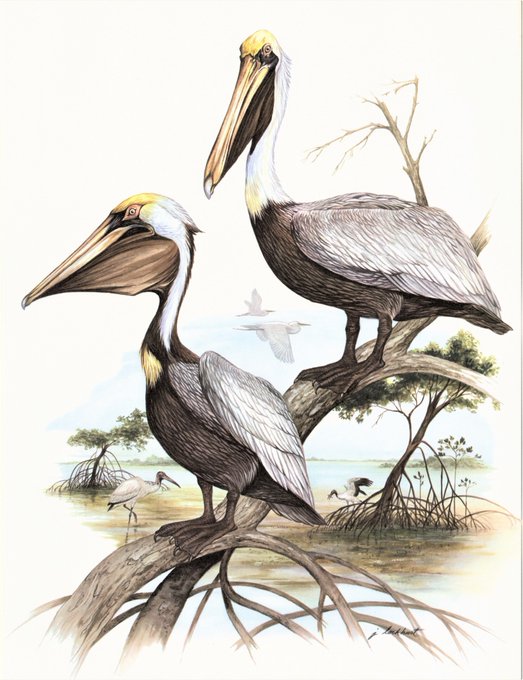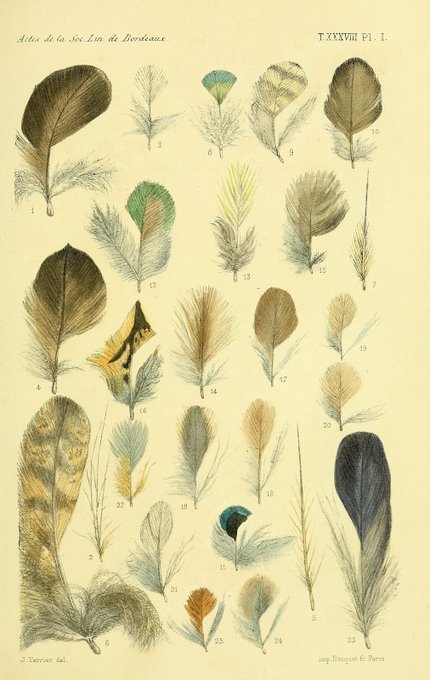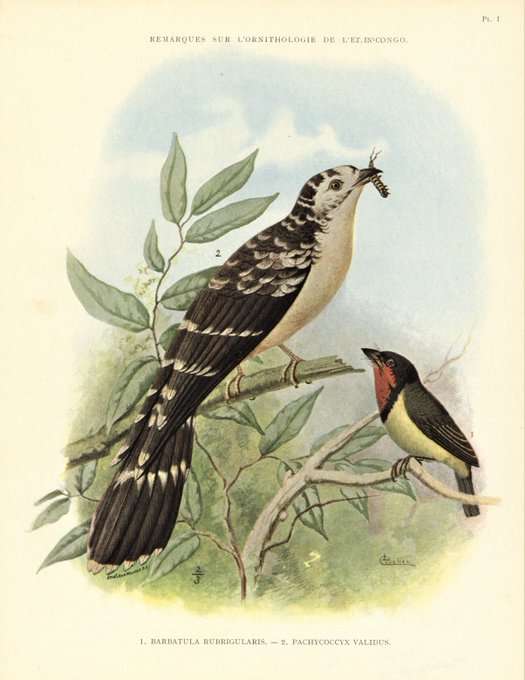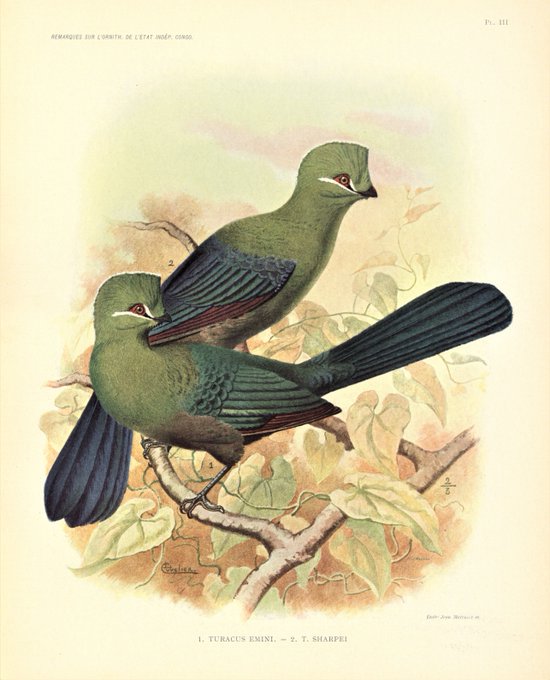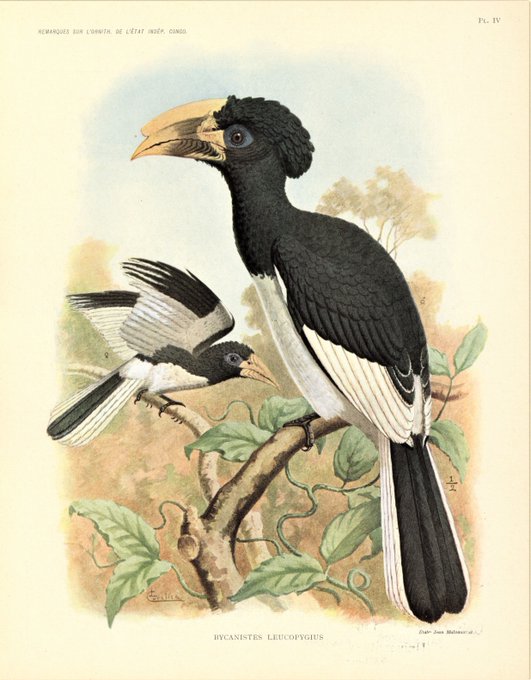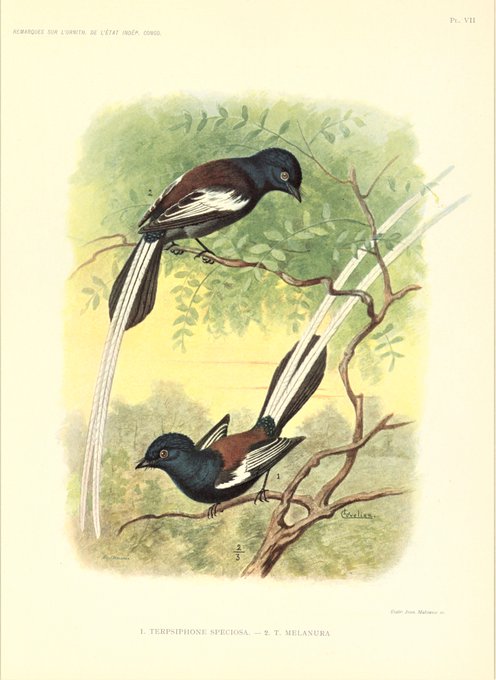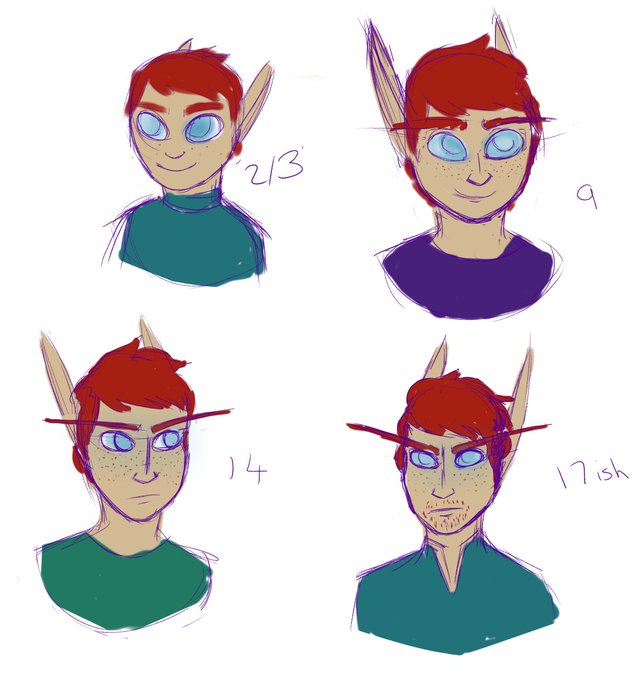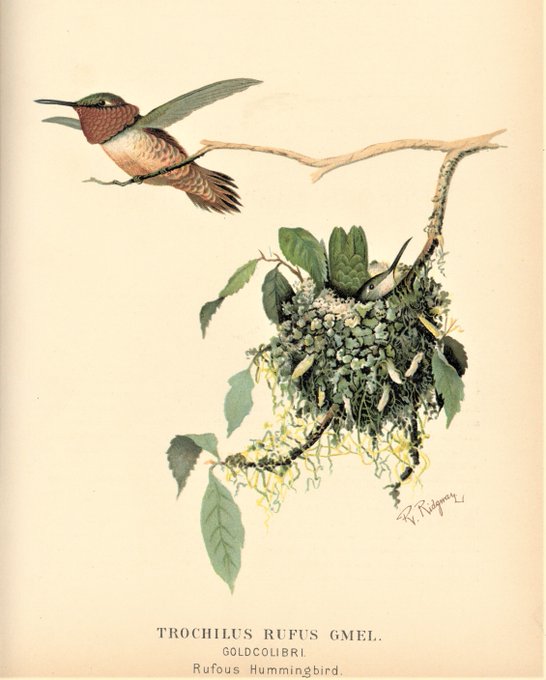athurのTwitterイラスト検索結果。 995 件中 44ページ目
For #Feathursday we mourn the loss of the Passenger Pigeon, once the most abundant bird in North America but now extinct for over 100 years. These Pigeons are found in Rex Brasher's 'Birds and Trees of North America.' Read his musings on the species here: https://t.co/oxBAQVobJg
Kingfisher (family Alcedinidae) for #Feathursday! #SciArt "drawn from nature" by George Edwards in 1761. Published in his "Gleanings of Natural History" (1758-1764), contributed in #BHLib from @NLB: https://t.co/aCJY07YiM2 #birds #birbs
"I'm Lucky."
I really wanted to digitize the sketch I did of Domino, so here we are. Domino has always been a badass and I'm excited to see her in a movie. YES, I still havent watched Deadpool 2 =(
.
.
.
.
#domino #NeenaThurman #ZazieBeetz #xforce #deadpool #deadpool2 #dp2 #…
For this #Feathursday we present a portrait of two extremely handsome Brown Peilcans (Pelecanus occidentalis) by American wildlife artist James Lockhart from Lockhart’s folio volume 'Portraits of Nature.' Learn more here: https://t.co/zS8jkRM9A2
What makes #Feathursday so great? #Feathers! #SciArt attributed on plate to J. Terrier from Faune de la Sénégambie: #Oiseaux (1884) by Alphonse Trémeau de Rochebrune. Contributed to #BHLib by the Research Library of the @FieldMuseum: https://t.co/77sek3dR0V -- #Ornithology #birds
These naughty American Magpies are raiding the nest of this horrified Black Duck! Typical Magpie behavior. This image is a reproduction of a painting by American wildlife artist James Lockhart from 'Portraits of Nature.' Learn more: https://t.co/TxZSnU4s1I #Feathursday
LA THURSDAYS
LICENSING ARTIST? Art by @clairbremner
#LAthursday #losangeles #patterndesign #patterndesigner #patterndesigners #textiledesign #textiledesigner #textiledesigners #surfacedesign #surfacepattern #surfacepatterndesign #repeatpattern #artist #australianart
Yesterday was #Feathursday and we'd like to share with you these beautiful birds of the Congo from 'Remarques sur l'ornithologie de l'État indépendant du Congo' published in Brussels by Musée du Congo in 1905. More here: https://t.co/WbJuDxtubQ
We were so captivated by our feathered friends, we almost missed the little ship on the water, just behind that middle birdie's hind toes. Plate from an epic series of 22 volumes on New York state wildlife published in the 19th century https://t.co/TNDv8BVrY5 #feathursday
Hello and welcome to my emporium of Hamathur Brightmourn where I only talk about my shitty noble void elf and how terrible he is. Ignore the last image in this set that's a potential spoiler oh god how did that get in here
This week for #Feathursday we've got Swifts from Rex Brasher's 12-volume set 'Birds and Trees of North America.' Learn all about this aerobatic tendencies here: https://t.co/lCrbAzApX0
The Capitonidae inhabit humid forests in Central and South America & are closely related to toucans. Explore the family for #Feathursday with "A Monograph of the Capitonidæ" (1871), in #BHLib via @FieldMuseum: https://t.co/KMOy9PWBnj #BIRBS #birds #science
It's #koalathursday! What? This vicious little creature is another #raydenerequest. Thanks for keeping the good ideas coming @raydenesalinas! #koala #koalabear #viciouslittlecreature
These hummingbirds (while not common in Wisconsin) remind us of the little ones now flitting around our feeders! From 'Our Native Birds of Song and Beauty,' by the late-19th-century director of the Milwaukee Public Museum Henry Nehrling. More: https://t.co/ZR0g2znx2D #Feathursday
It's #Feathursday a day late but no birds short! These lovely Mimidae come from our favorite, Rex Brasher's 'Birds and Trees of North America.' Learn more here: https://t.co/DOvIaSyrbA
This #Feathursday we submit for your consideration a strolling Dodo, a chortling Swift, and some dancing dainties from the 1864 'Album des Bêtes à l'usage des gens d'esprit texte,' with caricatures by Jean-Jacques Grandville. Learn more here: https://t.co/iNKSEVnFAe
Happy #Feathursday! Abdim's Storks (Ciconia abdimii) are natives of Africa. #SciArt by Müller for Christian Gottfried Ehrenberg, Symbolae Physicae, Zoologica I, Avium, Part 1 (1828). Contributed by @SILibraries: https://t.co/7usbm1jimr #birds







